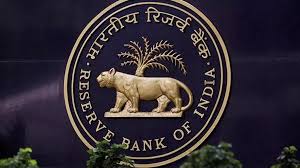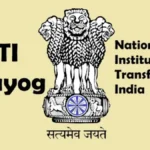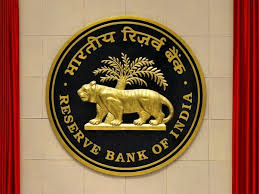RBI Cancels Licenses of 78 UCBs Since 2014
RBI’s Action on Urban Cooperative Banks (UCBs)
In a significant move, the Reserve Bank of India (RBI) has canceled the licenses of 78 Urban Cooperative Banks (UCBs) since 2014. This decision reflects the central bank’s ongoing efforts to maintain the stability and integrity of the financial system. The RBI’s action comes as part of its regulatory oversight to ensure that cooperative banks adhere to the required financial norms and operational guidelines.
Reasons Behind License Cancellations
The primary reasons for the cancellation of these licenses include persistent financial instability, failure to meet regulatory requirements, and operational mismanagement. The RBI has highlighted that many of these UCBs were unable to comply with the minimum capital adequacy norms, faced severe liquidity issues, and were involved in practices detrimental to depositors’ interests.
Impact on Stakeholders
The cancellation of licenses has had a significant impact on various stakeholders, including depositors, employees, and the broader financial ecosystem. Depositors of these banks are often left scrambling to recover their funds, while employees face job losses. Additionally, the closure of UCBs can disrupt local financial services, particularly in areas where these banks were the primary financial institution.
RBI’s Regulatory Framework
The RBI’s regulatory framework for UCBs includes stringent guidelines on capital requirements, management practices, and regular inspections. These measures are designed to ensure that UCBs operate in a sound and prudent manner. The central bank periodically reviews the performance and compliance of these banks to prevent systemic risks and protect the interests of depositors.
Moving Forward
The RBI’s continued scrutiny and regulatory actions aim to strengthen the financial sector and prevent the collapse of more banks. The central bank encourages UCBs to enhance their operational practices, adopt sound financial management strategies, and ensure compliance with regulatory norms to avoid future license cancellations.

Why This News is Important
Maintaining Financial Stability
The cancellation of licenses of 78 UCBs by the RBI is crucial for maintaining financial stability within the banking sector. By taking decisive action against institutions that fail to meet regulatory standards, the RBI helps prevent systemic risks that could threaten the broader economy. This ensures that the financial system remains robust and reliable for all stakeholders.
Protecting Depositors’ Interests
One of the primary motivations behind the RBI’s decision is to protect depositors’ interests. UCBs that are not financially sound pose a risk to depositors’ funds. By canceling the licenses of such banks, the RBI safeguards the savings of individuals and prevents potential losses that could arise from bank failures.
Enhancing Regulatory Oversight
This move underscores the RBI’s commitment to enhancing regulatory oversight within the banking sector. It sends a strong message to all financial institutions about the importance of adhering to regulatory standards and maintaining sound financial practices. The RBI’s actions are a reminder of the central bank’s role in enforcing compliance and ensuring the stability of the financial system.
Encouraging Better Practices
The cancellation of licenses also serves as a catalyst for better practices within the banking sector. It encourages UCBs to adopt improved management practices, adhere to regulatory norms, and maintain adequate financial health. This can lead to overall improvements in the quality of banking services and financial stability.
Strengthening the Financial Ecosystem
By removing weak and non-compliant banks from the system, the RBI helps in strengthening the financial ecosystem. This action contributes to a more resilient and trustworthy banking environment, which is essential for economic growth and stability. It ensures that only sound institutions remain operational, fostering a healthier financial landscape.
Historical Context:
Evolution of Urban Cooperative Banks
Urban Cooperative Banks (UCBs) have been a part of the Indian banking landscape since the early 20th century. They were established to provide financial services to urban areas, particularly for small and medium-sized enterprises and individuals. Over the years, UCBs have played a significant role in the financial inclusion of underserved segments of the population.
RBI’s Role in Regulation
The RBI’s involvement in regulating UCBs began in the 1960s when it was given the authority to oversee these institutions. The central bank introduced various regulatory measures to ensure the sound functioning of UCBs, including guidelines on capital adequacy, management practices, and regular inspections. The objective was to maintain the stability and integrity of these banks and protect depositors’ interests.
Challenges Faced by UCBs
Despite regulatory oversight, many UCBs have faced challenges related to financial instability, poor management, and non-compliance with regulatory norms. These issues have led to the closure of several UCBs over the years. The RBI’s recent actions reflect its ongoing efforts to address these challenges and reinforce the regulatory framework for UCBs.
Recent Developments
In recent years, the RBI has intensified its scrutiny of UCBs, resulting in the cancellation of licenses for several institutions. This is part of a broader strategy to enhance the stability of the banking sector and ensure that only financially sound institutions continue to operate.
Key Takeaways from “RBI Cancels Licenses of 78 UCBs Since 2014”
| Serial Number | Key Takeaway |
|---|---|
| 1 | The RBI has canceled the licenses of 78 UCBs since 2014. |
| 2 | Reasons for cancellation include financial instability and regulatory non-compliance. |
| 3 | The closure of these UCBs impacts depositors, employees, and the financial ecosystem. |
| 4 | The RBI’s actions aim to maintain financial stability and protect depositors. |
| 5 | Enhanced regulatory oversight and better practices are encouraged within the sector. |
Important FAQs for Students from this News
1. What prompted the RBI to cancel the licenses of UCBs?
The RBI canceled the licenses of UCBs primarily due to reasons such as financial instability, failure to meet regulatory requirements, and operational mismanagement. Many UCBs were unable to maintain minimum capital adequacy norms and faced liquidity issues.
2. How does the cancellation of UCB licenses impact depositors?
The cancellation of UCB licenses can leave depositors in a difficult situation as they may struggle to recover their funds. The closure of these banks disrupts financial services, potentially causing inconvenience and financial loss to depositors.
3. What steps does the RBI take to regulate Urban Cooperative Banks?
The RBI implements a regulatory framework that includes guidelines on capital requirements, management practices, and regular inspections. These measures are designed to ensure that UCBs operate soundly and comply with financial norms.
4. How many UCBs’ licenses have been canceled by the RBI since 2014?
Since 2014, the RBI has canceled the licenses of 78 Urban Cooperative Banks.
5. What is the significance of the RBI’s recent actions against UCBs?
The RBI’s actions are significant as they reflect the central bank’s commitment to maintaining financial stability and protecting depositors. These measures also encourage UCBs to adopt better practices and adhere to regulatory standards.
Some Important Current Affairs Links

















